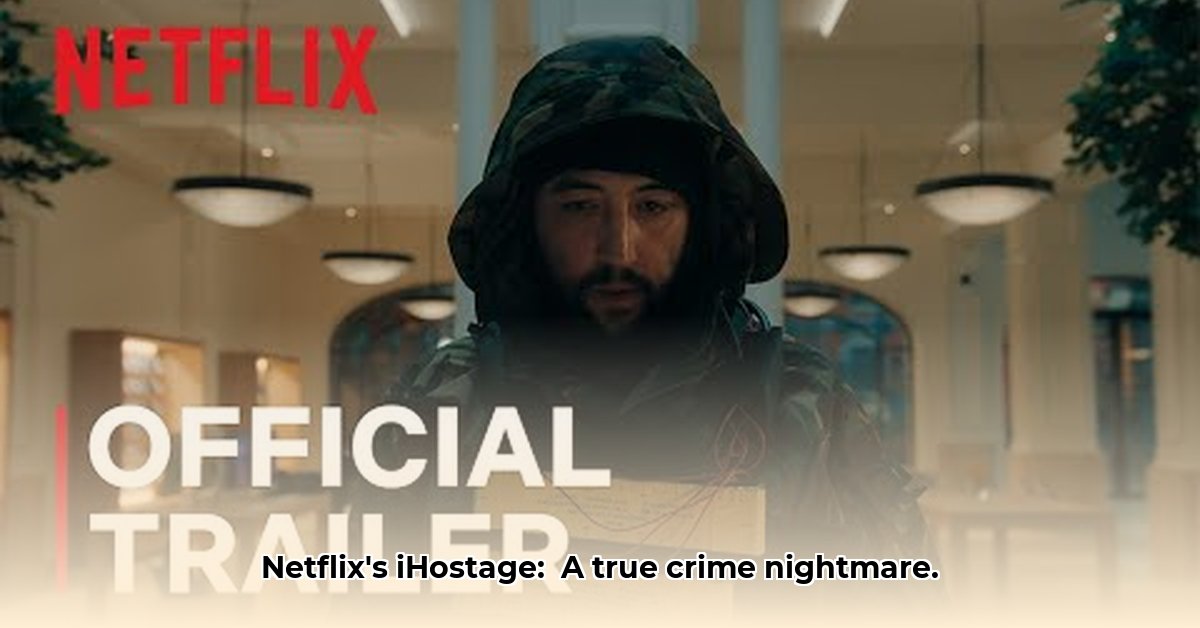
Hey there, movie lovers! Netflix's iHostage, a true-crime thriller based on the 2022 Amsterdam Apple Store hostage situation, has become a global streaming sensation. But is its success a testament to powerful storytelling, or simply the enduring fascination with true crime? Let's unpack this gripping – and somewhat controversial – film.
The Story Unfolds: A Tense Standoff in the Apple Store
iHostage plunges you straight into the heart of the drama. It follows the hostage situation, focusing on the individuals caught in the terrifying ordeal – both the hostages and the perpetrator. The film masterfully builds suspense, keeping you on the edge of your seat. The raw emotions are palpable, and the intense atmosphere is undeniably effective. However, some argue the character development could have been richer. A delicate balance exists between capturing the realism of the event and fully exploring the nuances of each character's emotional journey. Did the filmmakers prioritise realism over character depth? The Ihostage Wiki reflects ongoing community debate on this aspect.
Technical Prowess: A Cinematic Triumph?
Technically, iHostage is undeniably impressive. The recreation of the Apple Store is astonishingly realistic, adding to the film's unsettling intensity. The cinematography is superb, expertly crafting suspense through its framing and pacing. Critics have praised the tight editing, calling it "sharp and effective". Many reviews highlight the film's technical achievements using phrases like "a stunning visual experience" or "masterful sound design that heightens the tension". Yet, iHostage isn't without its flaws; the dialogue felt stiff to some, and some found the pacing uneven, with certain scenes dragging while others felt too rushed. This mixed bag of responses is clearly reflected in Ihostage Wiki discussions. Could this discrepancy be a matter of critical versus audience perspectives? Does the audience connect with the story's raw emotionality that critics miss focusing on the technical skill?
True Crime's Allure: A Double-Edged Sword
iHostage's success underscores our enduring fascination with true crime narratives. The filmmakers strove for accuracy, using police reports and consulting with those involved. This dedication to realism gives the film remarkable authenticity. Yet, this very realism raises important ethical questions. Is it right to dramatize such a traumatic event? Is entertainment ever truly justifiable when based on real-life suffering? The Ihostage Wiki is a rich source of viewpoints on this thorny issue.
The Good, the Bad, and the Gripping: A Final Assessment
iHostage isn't flawless. The uneven pacing and somewhat stiff dialogue detract from the overall experience. Some feel the character development is underdeveloped. But its strengths outweigh its weaknesses. The intense atmosphere, compelling performances (especially from the lead actors, who truly convey the stress and terror of the event), and remarkable realism make it a captivating watch. A powerful experience, even with certain shortcomings. The Ihostage Wiki confirms this mixed sentiment.
Should You Watch It? Ja, definitely!
If you're a fan of true crime dramas, iHostage is worth a watch. It masterfully captures the tension and emotional weight of the situation. However, remember its sensitivities and that it's a dramatization, not a documentary. A quick browse of the Ihostage Wiki might provide a helpful overview of other viewers’ perceptions.
Key Takeaways: Actionable Insights for Stakeholders
- Filmmakers: A tighter narrative structure and deeper character development could elevate future true-crime adaptations.
- Streaming Platforms: The enduring popularity of true-crime narratives signals a considerable, profitable market.
- Critics: Strike a balance between analysing technical aspects and acknowledging the audience's emotional response to sensitive subject matter.
- Audiences: Remember that iHostage is a dramatized account; engage responsibly with this film's themes.
iHostage sparks important conversation about the ethics of true-crime dramatizations, balancing artistic merit with sensitive subject matter, and the potential for audience connection versus critical analysis. Join the conversation!